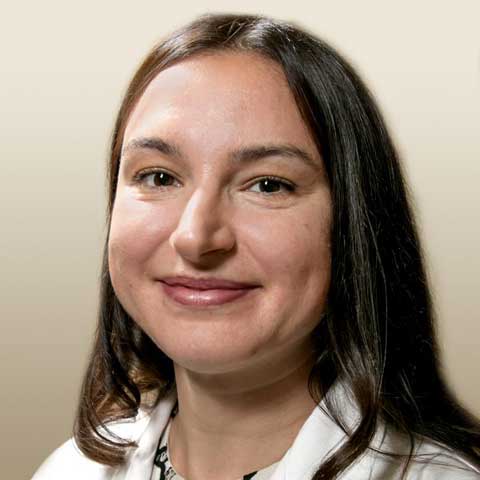Dr. Boukrina of Kessler Foundation further investigates novel, reading-deficit treatments after sub-acute stroke with five-year, $675,000 grant

for the Center for Stroke Rehabilitation
Research at Kessler Foundation
National Institutes of Health/National Institute of Deafness and Communication Disorders funds advance neurobehavioral research with potential to promote post-stroke plasticity
East Hanover, NJ – August 17, 2022 – Olga Boukrina, PhD, senior research scientist in the Center for Stroke Rehabilitation Research at Kessler Foundation, has received a five-year, $674,156 K01 grant from the National Institutes of Health/National Institute of Deafness and Communication Disorders. The grant funds Dr. Boukrina’s continued research on the role of reading deficits as a barrier to aphasia rehabilitation.
“In this project, we will develop a neurobehavioral reading intervention with the potential to promote post-stroke plasticity,” explained Dr. Boukrina. The study’s overall objective is to provide training and research support while employing a novel approach using functional magnetic resonance imaging (fMRI) neurofeedback (NFB) for the rehabilitation of reading disorders after stroke.
Reading impairments affecting 40% of left-hemisphere stroke survivors severely limit life participation. For more than half of individuals with aphasia, reading and language impairments become a chronic condition. “This means that a large proportion of stroke survivors with reading impairments have an incomplete response to rehabilitation,” said Dr. Boukrina, adding, “there is an urgent need for effective early interventions that can improve this statistic.”
Using fMRI neurofeedback signals provide stroke study participants with real-time information as they practice modulating their brain activity. This information will help them select the most effective mental strategies to maintain brain activation patterns associated with better reading recovery. “Engaging in self-regulation strategies combined with right-hand motor imagery can help stroke participants activate a particular part of the brain. We use the real-time fMRI neurofeedback method to inform them on how well they're doing in this task,” Dr. Boukrina explained.
“Once we have a full understanding of the relationship between brain activity in the left hemisphere and the time course of language recovery, then we can begin to implement other interventions that support the return of healthier patterns of brain activity after stroke,” concluded Dr. Boukrina.
About National Institute on Deafness and Other Communication Disorders
The National Institute on Deafness and Other Communication Disorders (NIDCD), part of the National Institutes of Health (NIH), conducts and supports research in the normal and disordered processes of hearing, balance, taste, smell, voice, speech, and language. For more information, visit https://www.nidcd.nih.gov/about.
About Kessler Foundation
Kessler Foundation, a major nonprofit organization in the field of disability, is a global leader in rehabilitation research that seeks to improve cognition, mobility, and long-term outcomes – including employment – for people with neurological disabilities caused by diseases and injuries of the brain and spinal cord. Kessler Foundation leads the nation in funding innovative programs that expand opportunities for employment for people with disabilities.